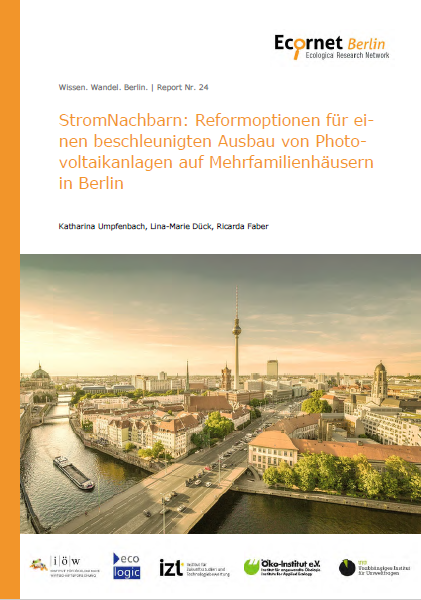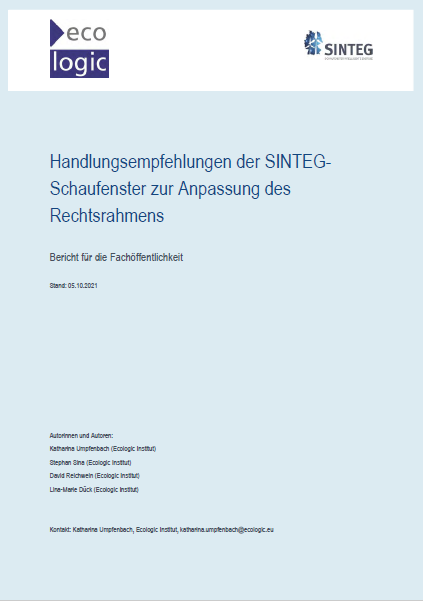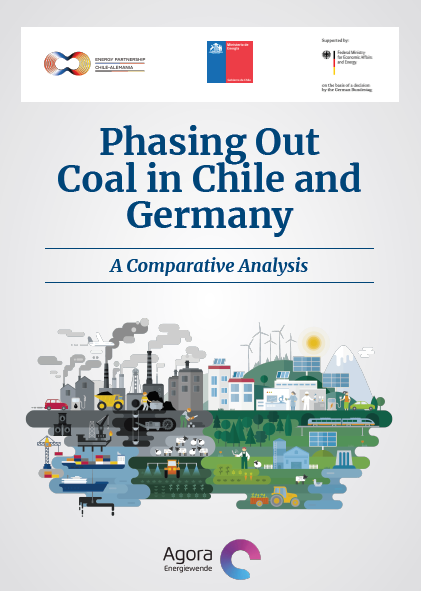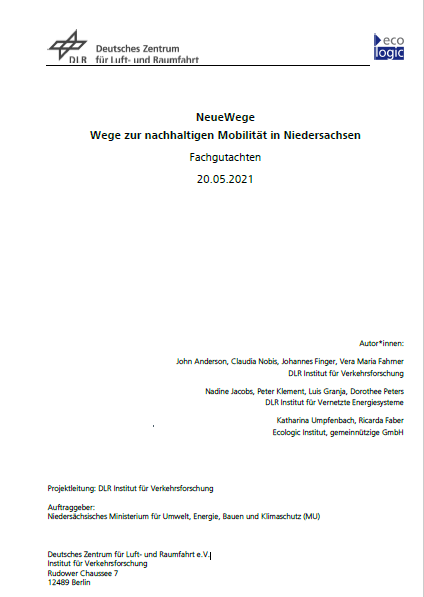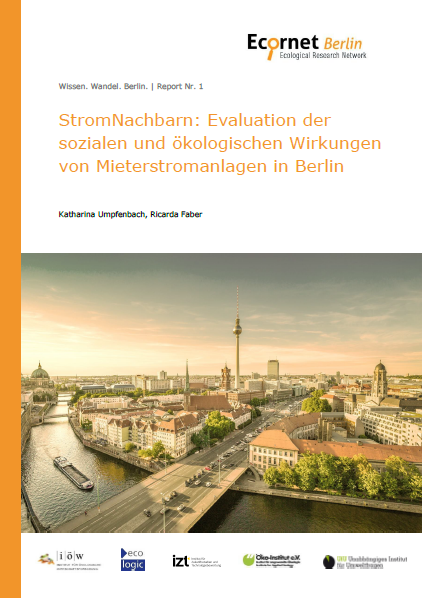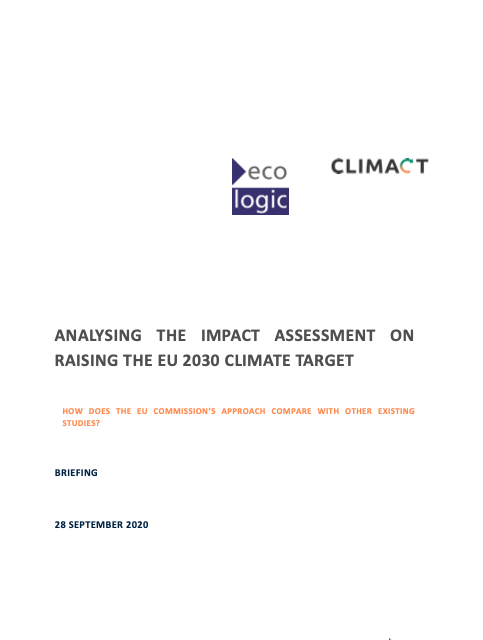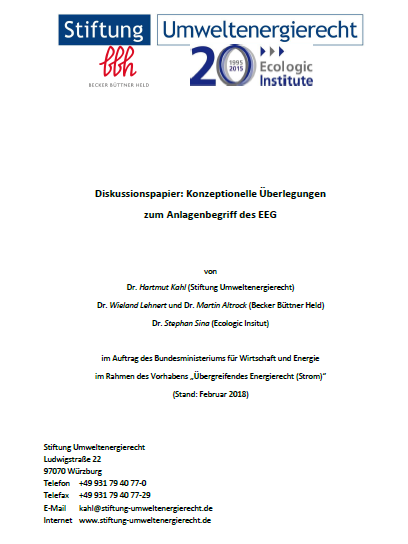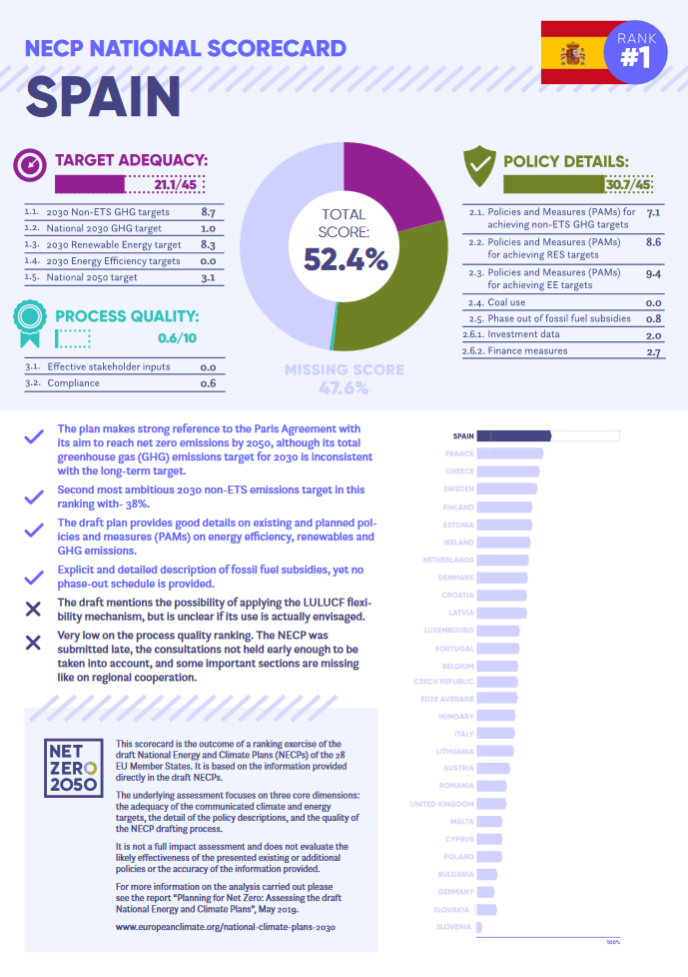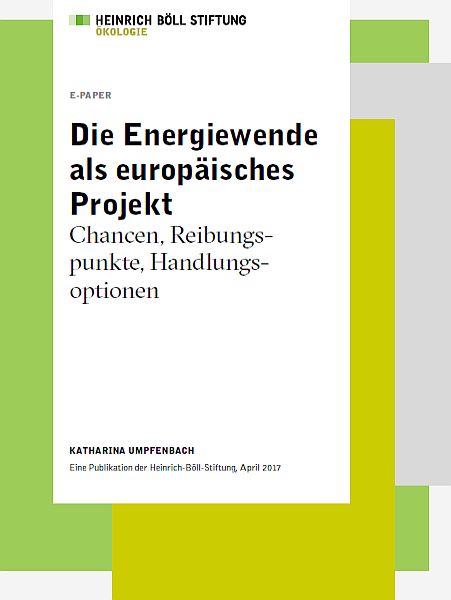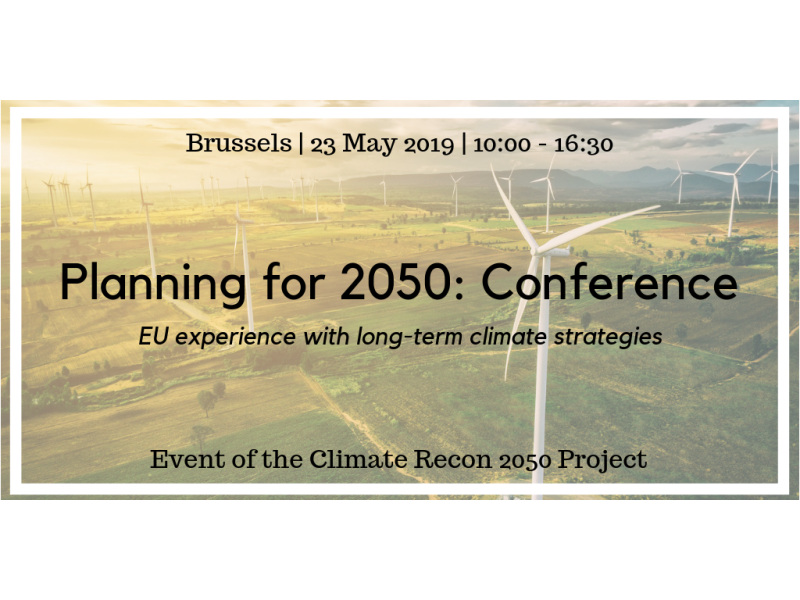Energy
The climate crisis threatens the very foundation of modern society. To avert it, the global economy needs to fully decarbonize within a generation. In this formidable challenge, energy consumption takes center stage as power plants, vehicles, and buildings generate the majority of EU emissions. Mature low-carbon technologies and practices exist, but they require new regulation and incentives to be scaled up successfully. Ecologic Institute's research focuses on building a framework for energy sector decarbonization.
Using its skills in legal, economic, and indicator-based analysis, the energy team assesses and designs effective energy policies at all government levels. To this end, we regularly debate solutions with relevant practitioners and stakeholders. A central research area is EU energy regulation and its interaction with the German energy transition.
The team's expertise includes renewable energy and efficiency, electricity market design, the coal exit, and sector coupling, i.e. at the interface between power, transport, and heating. Our legal work focuses on EU energy law and its transposition into national law and the legal challenges arising from digitalization.
Capacity building and education on the energy transition is another cornerstone of our work. Only with a wider understanding of the need for change and its implications for each single household will countries succeed in transforming their energy sectors.
In interdisciplinary projects, the energy team also studies nexus issues, including on questions related the resource needs of the energy transition or interlinkages between energy measures and needs to adapt to climate change.
Selected Projects for Energy
Transitioning to Net Zero' Success Stories
- Duration
-
-
- Funding
-
Smart Energy for Europe Platform (SEFEP), International Agora Energiewende, Germany
Event Series on the European Energy Transition
- Duration
-
-
- Funding
-
European Climate Foundation (ECF), International
ElectricityNeighbours – Can tenants in Berlin's apartment buildings become prosumers through solar power projects and sector coupling?
- Duration
-
-
- Funding
-
Governing Mayor of Berlin, Senate Chancellery , Germany
Energy Prosumption in Europe
- Duration
-
-
- Funding
-
European Environment Agency (EEA), International
Integrated Approaches for the Renovation and Modernisation of the Built Environment
- Duration
-
-
- Funding
-
European Commission, Directorate-General Energy (DG Energy), International
Support to the Expert Commission on the "Energy of the Future" Monitoring Process
- Duration
-
-
- Funding
-
Federal Network Agency (BNetzA), Germany
Big Picture of the European Clean Energy Transition in 2030
- Duration
-
-
- Funding
-
Smart Energy for Europe Platform (SEFEP), International Agora Energiewende, Germany
Scientific Support for the Commission on Growth, Structural Change and Employment
- Duration
-
-
- Funding
-
University of Applied Sciences (HTW Berlin), Germany
Analysis and Structuring of the Comprehensive Energy Law for the Electricity Sector
- Duration
-
-
- Funding
-
Federal Ministry for Economic Affairs and Energy (BMWi), Germany
Transformation to Climate Resilient and Resource-conserving Infrastructure (TRAFIS)
- Duration
-
-
- Funding
-
German Environment Agency (UBA), Germany
The Energy Transition in Germany Explained – Study Tours for International Journalists
- Duration
-
-
- Funding
-
Clean Energy Wire (CLEW), Germany Federal Ministry for Economic Affairs and Energy (BMWi), Germany
Selected Publications for Energy
Umpfenbach, Katharina et al. 2022: StromNachbarn: Reformoptionen für einen beschleunigten Ausbau von Photovoltaikanlagen auf Mehrfamilienhäusern in Berlin. Wissen. Wandel. Berlin. | Report Nr. 24. Berlin: Ecologic Institut.
Umpfenbach, Katharina; Stephan Sina; David Reichwein; Lina-Marie Dück 2021: Handlungsempfehlungen der SINTEG-Schaufenster zur Anpassung des Rechtsrahmens. Bericht für die Fachöffentlichkeit. Berlin: Ecologic Institute.
Hauser, Philipp; Benjamin Görlach, Katharina Umpfenbach et. al. 2021: Phasing Out Coal in Chile and Germany. A Comparative Analysis. Agora Energiewende: Berlin.
Anderson, John et. al. 2021: NeueWege Wege zur nachhaltigen Mobilität in Niedersachsen. Fachgutachten. DLR, Ecologic Institute: Berlin.
Umpfenbach, K., Faber, R. (2021). StromNachbarn: Evaluation der sozialen und ökologischen Wirkungen von Mieterstromanlagen in Berlin, Berlin: Ecornet Berlin.
Agora Energiewende and Ecologic Institute (2021): A "Fit for 55" package based on environmental integrity and solidarity: Designing an EU climate policy architecture for ETS and effort sharing to deliver 55% lower GHG emissions by 2030, Berlin: Agora Energiewende.
Climact, Ecologic Institute (2020): Analysing the impact assessment on raIsing the EU 2030 climate target - How does the European Commission’s approach compare with other existing studies?
Hartmut Kahl; Wieland Lehnert; Martin Altrock; Stephan Sina 2020: Diskussionspapier: Konzeptionelle Überlegungen zum Anlagenbegriff des EEG. https://stiftung-umweltenergierecht.de/wp-content/uploads/2015/10/%C3%9…
Bley, Simon Johannes, et al. (ed.) 2020: Sustainable Development in the European Union. Monitoring Report on Progress Towards the SDGs in an EU Context. [eurostat Statistical books 2020 edition]. Luxembourg: Publications Office of the European Union.
Velten, Eike Karola, Stoll, Theresa; Meinecke, Lisa (2019): Measures for the promotion of electric vehicles. Ecologic Institute, Berlin. Commissioned by Greenpeace e.V.
Duwe, Matthias; Eike Karola Velten, Nick Evans, Mona Freundt, Julien Pestiaux, Benoît Martin, Pascal Vermeulen (2019): Planning for net-zero: Assessing the Draft National Energy and Climate Plans. Berlin, Louvain-la-Neuve, Bruessels.
German Institute for Economic Research, Wuppertal Institute, Ecologic Institute (eds.) 2019: Phasing out Coal in the German Energy Sector. Interdependencies, Challenges and Potential Solutions.
Lucha, Christine and Lisa Meinecke 2019: Alte Energiewelt – Neue Energiewelt. Trends und Akteure in einem zunehmend digitalen Energiesystem. böll.brief GRÜNE ORDNUNGSPOLITIK #9. Berlin: Heinrich-Böll-Stiftung. CC-BY-NC-ND 4.0
Anna Sabadash et al. 2019: Smarter, greener, more inclusive? – Indicators to support the Europe 2020 strategy. Luxembourg: Publications Office of the European Union.
Umpfenbach, Katharina (2017): Die Energiewende als europäisches Projekt. Chancen, Reibungspunkte [Energy transition as a European project]. Study commissioned by the Heinrich-Böll-Stiftung, Berlin: Heinrich-Böll-Stiftung.
Selected Events for Energy
Digital Event:What Role do Tenants Play in the Energy Transition in Berlin?
- Date
-
- Location
- Berlin, Germany
Conference:Business Mitigates Climate Change – Final Event of the Dialogue Forum
- Date
-
- Location
- Berlin, Germany
Discussion:EU Reform Process after the European Elections: What role for climate and energy policy?
- Date
-
- Location
- Berlin, Germany
Conference:Planning for 2050 – Conference
- Date
-
- Location
- Brussels, Belgium
Visitors Program:Hands-on the Future of Energy with the EFEX Study Tour 2019
- Date
-
-
- Location
- Brussels, Antwerp, Rotterdam, Amsterdam | Belgium, Netherlands
Selected Presentations for Energy
Lecture:Legal Aspects of Big Data in the Energy Sector – Summer School Lecture
- Date
-
- Location
- Potsdam, Germany














